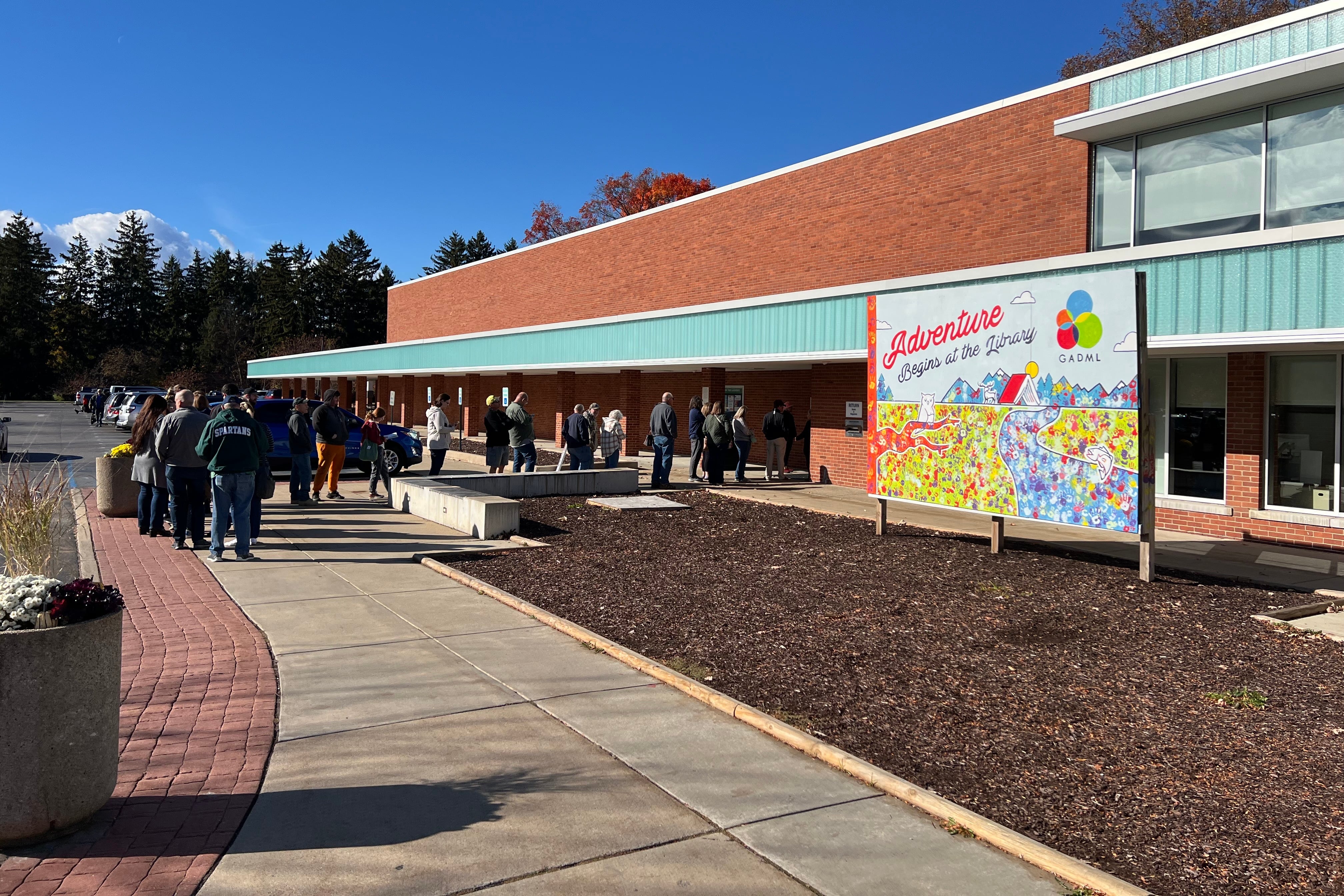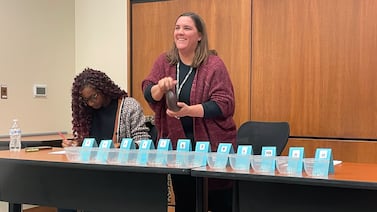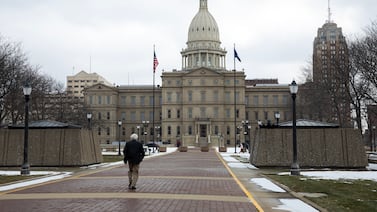Votebeat is a nonprofit news organization reporting on voting access and election administration across the U.S. Sign up for Votebeat Michigan’s free newsletter here.
LANSING — Michigan Gov. Gretchen Whitmer on Friday scheduled a pair of special elections for Michigan’s 35th Senate District, nearly eight months after the swing seat became vacant.
The primary and general elections for the district — which includes Midland, Saginaw and Bay City — will take place next year, she said, meaning the seat will remain vacant for at least another eight months.
Candidates will have to file to run for the office by Sept. 30, 2025, with the primary scheduled for Feb. 3, 2026, and the general election May 5. The winning candidate will hold office for the final seven months of the four-year term unless they are reelected in November 2026.
“We have a lot of good work to get done before the end of next year,” Whitmer, a Democrat who will be forced out of office by term limits at the end of 2026, said in a statement.
“Michiganders want us to create jobs and grow the economy, invest in schools and boost literacy rates, and, of course, fix those damn roads,” she said. “I look forward to working with the next state senator from this district to tackle these issues and more.”
Balance of power in the Michigan Senate is at stake
Republicans have accused Whitmer of playing politics with the vacant seat in a district they believe they could flip. Former state Sen. Kristen McDonald Rivet, a Democrat, won the seat by roughly 7 percentage points in 2022 but resigned to join Congress on Jan. 3 — 238 days ago.
If a Republican won the seat, it could effectively shift the balance of power in the Senate and potentially stop all legislation without Republican support from advancing in the chamber.
“After months of unrelenting pressure from Republicans, Gov. Whitmer has come to her senses and realized denying the people of her state the right to vote is not going to help with her presidential aspirations,” Senate Minority Leader Aric Nesbitt, who is running for governor, wrote on social media.
“The days of a Democrat majority in the Michigan Senate are coming to an end,” he predicted.
Democrats, meanwhile, said they welcome the chance to defend the seat.
“It’s an opportunity to show our Republican colleagues, from Donald Trump down to Lansing, that their agenda is out of step with Michigan families,” Sen. Darrin Camilleri, a Trenton Democrat who chairs the caucus’ campaign arm, said in a statement.
At least three candidates have already filed to run for the post, including State Board of Education Chair Pamela Pugh and Saginaw County Democratic Party Chair Brandell Adams.
State Rep. Bill G. Schuette, a Midland Republican, has previously acknowledged he’s considering a state Senate run.
Four elections in 2026 for 35th District residents
The new elections will mean voters in the 35th Senate District will go to the polls as many as four times next year: the special election primary in February, the special general election in May, the statewide primary in August, and the November general election.
That schedule adds to what is already shaping up to be a busy election year for Michigan’s local clerks.
Katie Zanotti, Bay County clerk, told Votebeat earlier this year that she wished the election had been scheduled sooner, in part because special elections create a lot of additional work for clerks. Almost all of Bay County falls into the 35th Senate District, meaning clerks there will shoulder much of the burden.
Clerks and their teams must design ballots, run logic and accuracy testing on all their machines, secure polling places, and more each cycle. It can be expensive for local governments and difficult to pull off — and now, there will be almost no break for clerks in the district between each election. There won’t be a required early-voting period for the special election, as it isn’t a statewide race, but clerks told Votebeat they still expect a lot of effort to go toward these new races.
But Rebecca Grzegorczyk, elections coordinator for the Bay County Clerk’s office, said she felt it was probably the best timeline the governor could have chosen at this point. It’s already going to be a busy year, she said, and that specific timeline means officials can pace themselves.
“It’s going to be a full workload,” Grzegorczyk said, “but at least now we know.”
Election won’t help Republicans in budget negotiations
The timing of Whitmer’s call is significant. With the next fiscal year starting in one month, and the Legislature yet to agree on a budget, Democratic control of the Senate remains crucial for the party’s ability to mitigate the deep cuts proposed by the GOP-controlled House. Democrats also hope their electoral prospects will improve as the 2026 midterm elections near.
Republicans had hoped to use the special election to upset the Senate’s Democratic control and force more budget concessions from Democrats. The timing of the election effectively ends that possibility, unless there’s a historically long government shutdown.
A group of residents earlier this month sued Whitmer for failing to call a special election, arguing that the 270,000 people in the district deserve representation as quickly as possible.
Whitmer’s attorneys on Thursday asked a judge to dismiss the case, arguing that the court “does not have the authority to compel the governor to act.”
Some local Democrats have also complained about the prolonged Senate vacancy.
Simon D. Schuster is a Capitol reporter for Bridge Michigan. He can be reached at sschuster@bridgemi.com. Hayley Harding is a reporter for Votebeat based in Michigan. Contact Hayley at hharding@votebeat.org.






